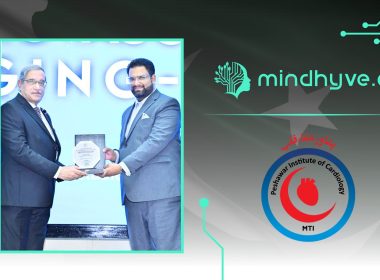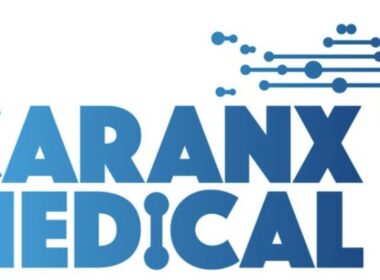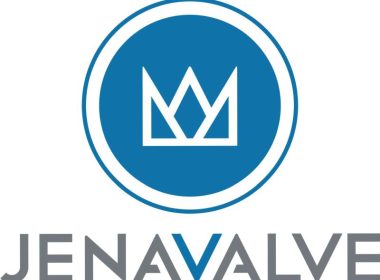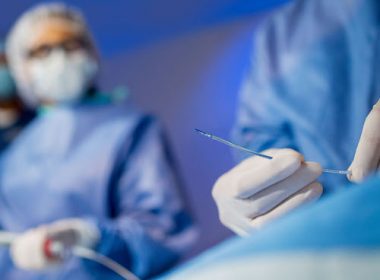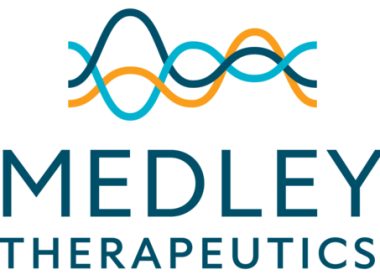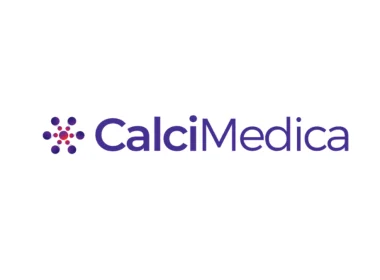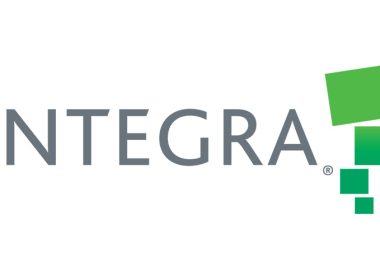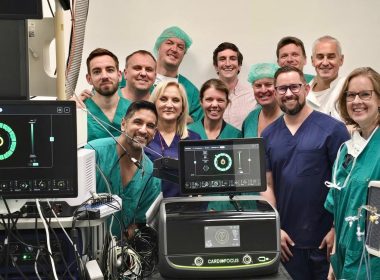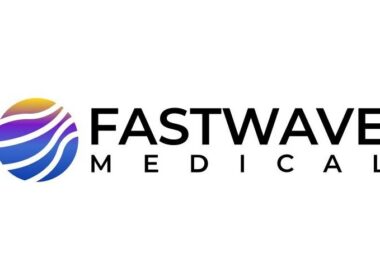PESHAWAR, Pakistan, Nov. 13, 2025 /PRNewswire/ — The Peshawar Institute of Cardiology – Medical Teaching Institute (PIC-MTI) hosted a high-profile Radiology Continuing Medical Education (CME) session on “Innovations in Cardiovascular Imaging,” drawing senior cardiologists, radiologists,…
Coronary/Structural Heart
Caranx Medical Announces First Clinical Use of the TAVIPILOT Soft, Cleared by FDA for Commercial in July
The world first AI Software for real-time intra-operative guidance of transcatheter heart valve implantation NICE, France–(BUSINESS WIRE)–Caranx Medical (“Caranx”), a French medical device company specializing in the development of an autonomous robot to democratize access to Transcatheter Aortic Valve Implantation (TAVI), a lifesaving procedure, today announced the first clinical use […]
JenaValve Announces 1,000th Case with the Trilogy™ Transcatheter Heart Valve (THV) System
IRVINE, Calif., Nov. 17, 2025 (GLOBE NEWSWIRE) — JenaValve Technology, Inc., developer and manufacturer of the Trilogy™ Transcatheter Heart Valve (THV) System, today announced the completion of its 1,000th commercial Trilogy procedure, performed in Cologne, Germany, marking a major milestone demonstrating the platform’s growing adoption in treating patients with symptomatic, severe aortic regurgitation (AR) who previously had limited treatment options.
Philips brings AI into the procedure room to assist doctors during heart valve repair
November 17, 2025Innovation uses AI to track and visualize tiny repair devices* through the beating heart, helping clinicians navigate in 3D with enhanced clarity and confidence**Amsterdam, the Netherlands – Royal Philips (NYSE: PHG, AEX: PHIA), a global leader in health technology, today introduced DeviceGuide, an AI-powered device tracking* solution that assists physicians during one of interventional cardiology’s most technically demanding procedures: repairing leaking heart valves through a minimally invasive approach. Built on Philips’ EchoNavigator platform, this software brings AI directly into the procedure room, translating complex imaging into intuitive, real-time visual guidance that helps clinicians navigate the beating heart with greater clarity and confidence. It will be previewed at London Valves 2025 (November 16-18), one of the world’s leading meetings for structural heart specialists.“With DeviceGuide, we’re bringing AI into the heart of the procedure room, and into the heart itself,” said Dr. Atul Gupta, Chief Medical Officer, Diagnosis & Treatment at Philips. “This is Philips’ first AI assisting physicians in real time to visualize and guide heart valve treatment devices* as they navigate the beating heart. It’s helping doctors in the moment as they are helping their patients with structural heart disease.”Minimally invasive treatment of the mitral valveA leaking heart valve, known as mitral valve regurgitation, is a condition in which blood leaks backward through the heart’s mitral valve. It affects more than 35 million [1] adults worldwide, leaving many short of breath, fatigued, and struggling with everyday activities like climbing stairs or walking short distances. Many also live with anxiety or fear, knowing their heart isn’t pumping efficiently. If left untreated, severe cases can lead to heart failure and other serious complications.For patients who are too frail for open-heart surgery, minimally invasive transcatheter repair techniques such as mitral transcatheter edge-to-edge repair (M-TEER) offer a vital treatment option. During these procedures, physicians repair a leaking valve through a tiny incision in the top of the leg in the groin area, guiding long, flexible instruments through the blood veins and navigating a miniature repair device into the beating heart.Clinicians must view and interpret both X-ray and ultrasound images on multiple screens, coordinate movements between two operators, and make precise adjustments to grasp the moving valve leaflets, position the repair device, and confirm the result in real time. The process demands accuracy, coordination, and experience from the team. This is where DeviceGuide can help with its 3D navigation support.How AI is helpingDeviceGuide uses an AI algorithm to automatically track the tiny repair device as it moves through the beating heart, intelligently combining live echo and X-ray images. It creates a virtual 3D model of the treatment device in real time, superimposed on the live images of the beating heart. This allows clinicians to see where the device is and in which direction it is pointing, providing a clear view of the procedure and potentially enabling them to navigate the device more easily to effectively seal the leak.“The AI software serves as an assistive tool, with the physician always remaining in control. This isn’t about replacing expertise – it’s about amplifying it,” added Dr. Atul Gupta. “By embedding AI into the procedure, DeviceGuide gives physicians an extra pair of eyes, effectively bionic vision, helping them treat more patients safely and confidently.”Collaboration with Edwards LifesciencesThis innovation was developed in close collaboration with Edwards Lifesciences, the manufacturer of these repair devices. The solution combines Philips’ expertise in medical imaging and AI technologies with Edwards’ global leadership in structural heart innovation. Together, the companies have reimagined key parts of the mitral TEER procedural workflow.“DeviceGuide demonstrates the impact of combining leading imaging and therapy expertise to develop solutions designed around the procedural workflow, a model that will shape the future of AI-enabled image-guided structural interventions,” said Mark Stoffels, Business Leader, Image Guided Therapy Systems.This solution illustrates how Philips’ imaging and AI expertise can merge with the insights of leading therapy companies to innovate procedural workflows. This kind of collaboration is a model for developing the next generation of AI-enabled, image-guided innovations, centered on the needs of clinicians and their patients.Read more on how Philips DeviceGuide works here.
Windtree Therapeutics Announces More Strengthening of Its Istaroxime and Next Generation SERCA2a activator Patent Estate
Windtree has a total of 59 issued or allowed patents and 17 pending patents for Istaroxime and its SERCA2a activators Windtree received recent notification of allowed Istaroxime patents for acute heart failure in Canada and Mexico The pure SERCA2a activators patent for acute heart failure was granted in Isreal WARRINGTON, Pa., Nov. 14, 2025 (GLOBE NEWSWIRE) — Windtree Therapeutics, Inc. (“Windtree” or “the Company”) (OTCID: WINT), a diversified company with several divisions and focused on becoming a revenue generating company, announced that acute heart failure patents are allowed in Canada (Patent Application No. 3,130,261) and Mexico (Patent Application No. MX/a/2021/010483). Additionally, the next generation pure SERCA2a activator patent for heart failure was granted in Isreal (Patent Application No. 291412). This latest news for Windtree’s cardiovascular pipeline makes a total of 58 patents issued or allowed, with 17 pending. The cardiovascular patent estate includes istaroxime, the dual mechanism SERCA2a activators and the pure SERCA2a activators for the treatment of heart failure, prevention of arrhythmias and treatment of cardiogenic shock. Heart failure affects 60 million people globally of which approximately 20 million are admitted annually due to Acute HF, 1.5 million in the US. In patients with systolic blood pressure BP < 120 mmHg, in-hospital and 6-month mortality can reach double digit percentages. Additionally, hospital readmission after discharge and/or worsening heart failure and/or death are areas that need drug innovation. Current treatment options for acute heart failure patients are limited and can have side effects such as arrythmias and problems with renal function. “We are very pleased to be strengthening our cardiovascular patent estate,” said Jed Latkin, Chief Executive Officer of Windtree. “We believe that istaroxime has a unique profile to effectively treat acute heart failure patients with low blood pressure, who are most in need. Further, istaroxime has demonstrated favorable results in renal function and no increase in arrythmias that is lacking with currently available drugs. We are pursuing partnership for development and believe that the clinical studies to date are very encouraging in considering a Phase 3 program for istaroxime.” About Windtree Therapeutics, Inc.Windtree Therapeutics, Inc. is a diversified company with several divisions and focused on becoming a revenue generating company with future profitability. About IstaroximeIstaroxime is a first-in-class dual-mechanism therapy designed to improve both systolic and diastolic cardiac function. Istaroxime is a positive inotropic agent that increases myocardial contractility through inhibition of Na+/K+- ATPase with a complimentary mechanism that facilitates myocardial relaxation through activation of the SERCA2a calcium pump on the sarcoplasmic reticulum enhancing calcium reuptake from the cytoplasm. Data from multiple Phase 2 studies in patients with early cardiogenic shock or acute decompensated heart failure demonstrate that istaroxime infused intravenously can significantly improve cardiac function and blood pressure without increasing heart rate or the incidence of clinically significant cardiac rhythm disturbances. About Pure SERCA2a ActivatorsThese compounds activate SERCA2a and Windtree Therapeutic’s research and development program is evaluating these preclinical product candidates, including oral and intravenous SERCA2a activator heart failure compounds. Forward Looking StatementsThe Company may, in some cases, use terms such as “predicts,” “believes,” “potential,” “proposed,” “continue,” “estimates,” “anticipates,” “expects,” “plans,” “intends,” “may,” “could,” “might,” “will,” “should,” or other words that convey uncertainty of future events or outcomes to identify these forward-looking statements. Such statements are based on information available to the Company as of the date of this press release and are subject to numerous important factors, risks, and uncertainties that may cause actual events or results to differ materially from the Company’s current expectations. Examples of such risks and uncertainties include, among other things: risks related to the Company’s ability to begin its environmental services business, and manage costs and execute on its operational and budget plans. These and other risks are described in the Company’s periodic reports, including its Annual Report on Form 10-K, Quarterly Reports on Form 10-Q, and Current Reports on Form 8-K, filed with or furnished to the Securities and Exchange Commission and available at www.sec.gov. Any forward-looking statements that the Company makes in this press release speak only as of the date of this press release. The Company assumes no obligation to update forward-looking statements whether as a result of new information, future events, or otherwise, after the date of this press release. Contact Information:Eric Curtisecurtis@windtreetx.com
First Clinical Investigation of a Gene Therapy (YAP101) to Induce Cardiac Regeneration to Treat Heart Failure Passes Initial Safety Hurdle
Medley Therapeutics (formerly YAP Therapeutics) has dosed the first cohort (n=3) with YAP101 in the Phase 1 SALVADOR-HF trial at The Texas Heart Institute at Baylor College of Medicine in the Baylor St. Luke’s Medical Center (Houston). This is the first clinical investigation of a genetic medicine to induce endogenous […]
CalciMedica Announces Publication in JCI Insight of Preclinical Data Supporting CRAC Channel Inhibitor as a Potential Therapy for Pulmonary Arterial Hypertension
Preclinical data support CRAC channel inhibitor, CM5480, as a potential first-in-class, differentiated therapy for pulmonary arterial hypertension (PAH), both as monotherapy and in combination with existing treatments Cardiac benefit supports the mechanistic rationale for CRAC channel…
Integra LifeSciences Receives FDA 510(k) Clearance for Use of the CUSA® Clarity Ultrasonic Surgical Aspirator System for Cardiac Surgeries
PRINCETON, N.J., Nov. 11, 2025 (GLOBE NEWSWIRE) — Integra LifeSciences Holdings Corporation (Nasdaq: IART), a leading global medical technology company, is pleased to announce the FDA 510(k) clearance for use of its CUSA® Clarity Ultrasonic Surgical Aspirator System for cardiac surgeries. The recent clearance for specific cardiac indications encompasses the debridement of unwanted tissue in cardiac surgeries, including valve replacement and repair.
CardioFocus Announces First Enrollments in CE Mark Clinical Trial of QuickShot™ PFA Catheter and CardioWave™ PFA System
MARLBOROUGH, Mass.–(BUSINESS WIRE)–CardioFocus, Inc., a medical device company dedicated to advancing ablation treatment for cardiac arrhythmias, today announced a series of major milestones advancing its pulsed field ablation (PFA) program. The company has initiated its CE Mark pivotal clinical trial for the QuickShot™ Nav large-area focal PFA Catheter and the […]
FastWave Medical Completes Enrollment in Coronary Laser IVL Feasibility Study and Secures Ninth U.S. Patent
Successful study enrollment and patent issuance highlight FastWave’s continued momentum with its Sola™ coronary laser intravascular lithotripsy platform. MINNEAPOLIS, Nov. 11, 2025 /PRNewswire/ — FastWave Medical successfully completed enrollment in its 30-patient coronary feasibility…

